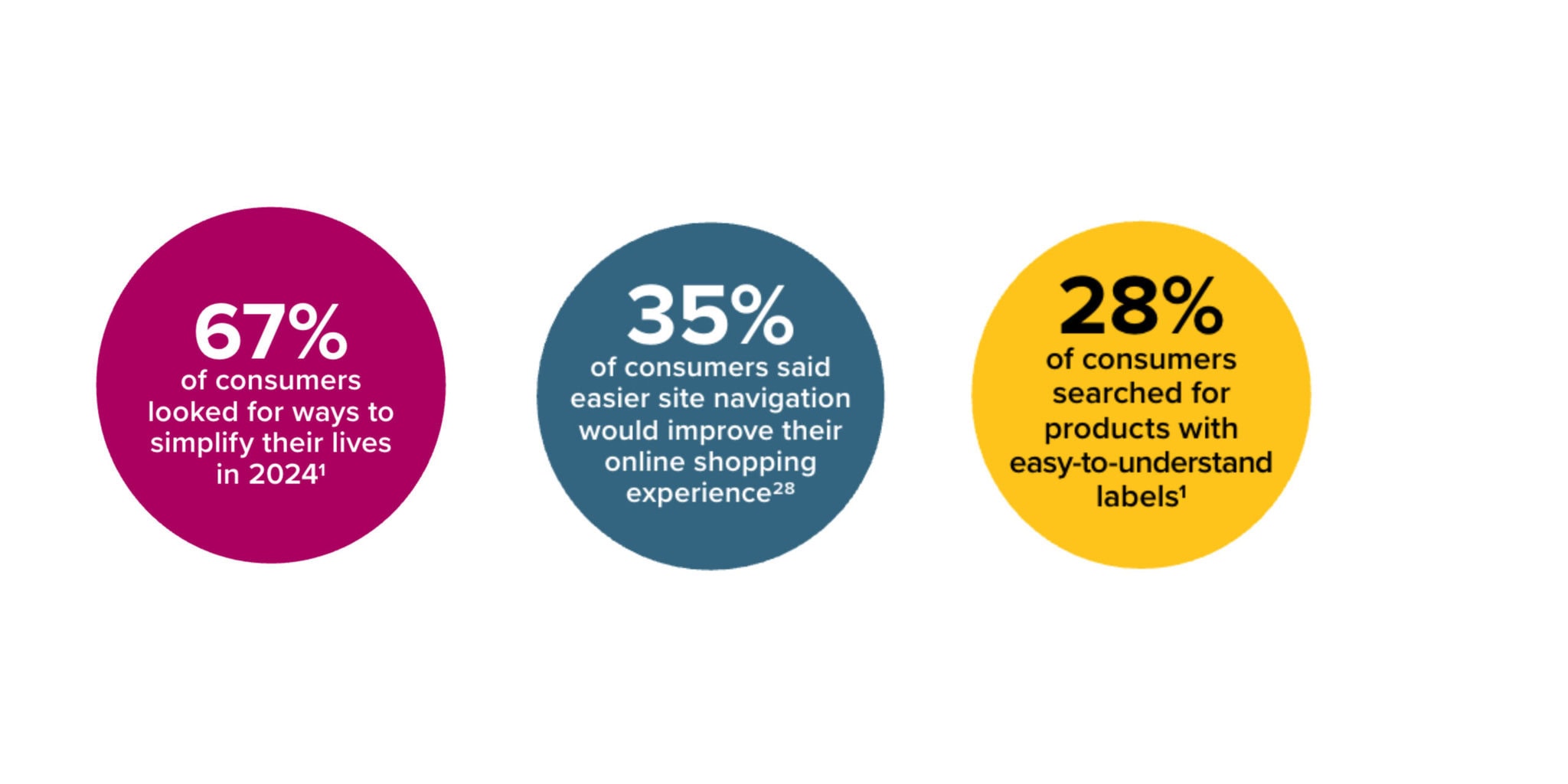The Modern Traveler’s Dilemma: Too Many Choices, Too Little Time
Imagine planning your next vacation. A single search for “beach villas” yields thousands of results, leaving you wondering: where do I even begin? This paralysis, borne of overwhelming options, is a reality for today’s travelers. According to Euromonitor’s 2025 Top Consumer Trends, this isn’t just about wanting fewer choices—it’s about wanting better ones.
The Filtered Focus trend highlighted in the report describes how consumers, inundated with information, increasingly desire intuitive, tailored options that save time and mental effort. This is even more critical during an era of heightened price sensitivity, captured in the Wiser Wallets trend. With inflationary pressures still shaping behavior, travelers weigh every booking against both immediate and long-term value.

Meanwhile, AI Ambivalent consumers recognize the potential of AI to address choice fatigue but remain skeptical about its accuracy and transparency. Platforms like Booking.com and Airbnb are stepping into this gap, using AI to streamline travel planning and optimize value for increasingly discerning travelers.

While half of travelers trust AI for booking recommendations, they primarily seek it for personalized and relevant product suggestions
Source: Euromonitor
A note about the report: Euromonitor’s report is built on extensive global data: surveys of 40,000 consumers across 100+ countries, expert insights, and real-world case studies. It’s a robust look at how shifting consumer behaviors impact industries, including travel.
Booking.com’s AI Tools: Simplifying Complex Journeys
Booking.com’s latest AI features directly address both choice fatigue and price sensitivity, positioning the platform as a comprehensive trip planner.
What’s New?
- Smart Filter: Travelers can describe what they’re looking for in natural language—“family-friendly villa with a pool near the beach”—and Booking.com automatically applies the relevant filters. It eliminates the need for users to manually sift through countless options.
- AI Trip Planner: This conversational tool guides users through their travel planning, offering curated suggestions based on budget, preferences, and destinations.
- Property Q&A: By analyzing reviews and property details, this feature provides immediate answers to guest queries, such as “Is this location suitable for toddlers?”
- Review Summaries: Aggregated feedback highlights key details like “quiet neighborhood” or “great value for money,” helping users make faster, more confident decisions.
Why It Works
With 67% of global consumers looking for ways to simplify their lives (Euromonitor, 2024), Booking.com’s AI tools are designed to cut through the noise. Moreover, its transparency in providing review summaries and instant Q&A aligns with the Wiser Wallets trend, ensuring travelers feel they are making well-informed, value-driven choices.

Airbnb’s AI Features: Personalization Drives Confidence
Airbnb takes a more focused approach, integrating AI to deliver a deeply personalized booking experience.
Key Features
- Suggested Destinations: AI recommends destinations tailored to a user’s browsing history, preferences, and past bookings.
- Recommended Filters: Dynamic filters anticipate needs, such as highlighting family-friendly properties or eco-friendly stays.
- Personalized Listing Highlights: For example, travelers with pets see a property’s dog-friendly yard front and center, making choices intuitive and seamless.
Building Trust Through Relevance
In an era where 54% of consumers only buy from brands they completely trust, Airbnb’s AI strengthens confidence by personalizing every interaction. This approach reflects the Filtered Focus demand for curated options while catering to Wiser Wallets by helping guests feel their money is well spent on a stay that meets their unique needs.
Comparing Booking.com and Airbnb: Two Approaches to the Same Problem
While both platforms use AI to reduce choice fatigue and appeal to budget-conscious travelers, their methods diverge significantly:
- Breadth vs. Depth: Booking.com’s AI spans the entire journey, from search to post-booking queries, while Airbnb focuses on refining the property selection experience.
- Interactive vs. Predictive: Booking.com’s AI Trip Planner offers an interactive conversation, while Airbnb’s tools rely on predictive algorithms to guide users toward relevant options.
- Value Communication: Booking.com uses aggregated review summaries to communicate value, while Airbnb personalizes value by highlighting specific, guest-relevant property features.
Why This Matters for Short-Term Rental Managers
AI advancements on these platforms aren’t just reshaping how travelers book—they’re also changing how short-term rental managers operate.
1. Showcasing Value Matters More Than Ever
Travelers, guided by Wiser Wallets, scrutinize every booking decision. Highlight your property’s unique features, such as “ideal for remote work,” “eco-certified,” or “steps from a top-rated restaurant,” to increase visibility in AI-driven recommendations.
2. Be Transparent to Build Trust
With tools like Booking.com’s Property Q&A or Airbnb’s Personalized Listing Highlights, ensuring your descriptions are accurate and address common guest concerns can reduce friction and enhance conversion rates.
3. Invest in Dynamic Pricing Tools
AI-driven platforms favor listings with competitive, market-driven pricing. Use dynamic pricing tools to stay ahead of trends and offer value without undercutting your margins.
4. Act on Guest Feedback
Booking.com’s review summaries offer a blueprint for success. If recurring themes—such as noise complaints or missing amenities—appear in reviews, address them proactively to improve both guest satisfaction and ranking.
Areas for Improvement: What AI Still Gets Wrong
Despite their strides, AI tools on these platforms have room to grow:
- Transparency Needs Work: Many travelers remain skeptical of AI-generated recommendations. Platforms must explain how results are curated and ensure accountability for errors.
- Integration Challenges: AI insights often feel disconnected from third-party property management tools. Enhanced integration could provide managers with more actionable data.
- Room for Nuance: AI-generated summaries and filters sometimes miss subtle guest preferences. For example, distinguishing between “close to nightlife” and “quiet but central” could improve results.
Winning the Trust and Wallets of Today’s Travelers
The Filtered Focus and Wiser Wallets trends highlight an emerging reality: today’s travelers want more than convenience—they demand value. Platforms like Booking.com and Airbnb are responding by using AI to curate smarter, more personalized options that align with individual budgets and preferences.
For short-term rental managers, the message is clear: adapt to these trends or risk being left behind. By optimizing listings, leveraging AI tools, and proactively addressing guest concerns, managers can thrive in this new landscape.
Ultimately, success in the short-term rental market won’t just come from having a great property but from ensuring it’s the right property in the eyes of increasingly selective, value-conscious travelers.




![Trump-Era Policies Fuel Travel Uncertainty: Fewer Canadians, Europeans to U.S.—Fewer Americans to Europe [Early Data]](https://www.rentalscaleup.com/wp-content/uploads/2025/04/Trump-Era-Policies-Fuel-Travel-Uncertainty-Fewer-Canadians-Europeans-to-U.S.—Fewer-Americans-to-Europe-Early-Data-150x150.jpg)



